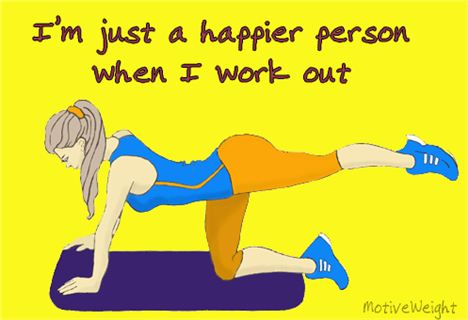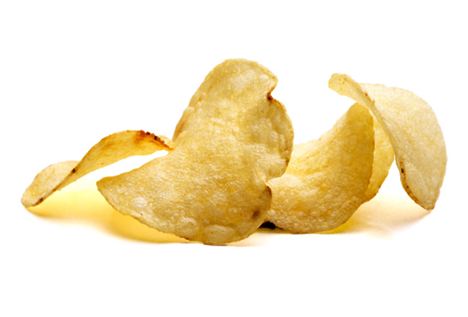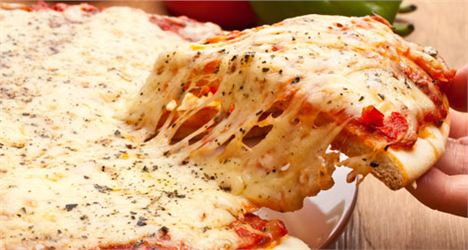IN my last article I talked to you about the subject of food cravings and the nutritional factors that can trigger them. But that’s only half of the story. Why, when we are stressed, depressed, anxious, emotional in any way, do we crave all the wrong foods and what can we do about it?
Let’s look first at why the cravings occur...
Many emotional based food cravings occur when our neurotransmitter levels are out of balance. Neurotransmitters are the brain’s communicators and form a vital part of everyday life and correct function. There are four neurotransmitters which can make us crave foods and determine the actual foods we crave so let’s take a look at each one in turn.
The good news is there are some simple changes that you can make to your diet that will have a big effect on your mood and also banish the cravings.
Serotonin is the neurotransmitter in charge of how we feel about ourselves and the world around us. It is a relaxing brain chemical and so with adequate levels we’ll feel at peace with ourselves and others. With low serotonin levels come the feelings of self-loathing and despair which we link with depression and cravings for starchy, salty foods like bread, pasta, crisps etc.
Dopamine on the other hand, is an energiser responsible partly for our get up and go and our brain’s pleasure and reward centre. When our levels are just right we feel motivated, energised and have a general zest for life. When dopamine levels are low we can feel sluggish, apathetic and unable to focus. Our focus for food cravings tends to be sweets, coffee, fizzy drinks, chocolate and alcohol as these will quickly stimulate our brain and give us the kick we are looking for. Conversely, if our dopamine levels are excessively high we will experience feelings akin to hyperactivity with over heightened mental senses, but will also be faced by the same sweet food cravings as the brain seeks to heighten these feelings.
Acetylcholine regulates the speed at which we process information. When we find ourselves experiencing ‘brain fog’ forgetfulness and difficulty processing information then you could have low levels of this neurotransmitter and may also be experiencing cravings for fatty foods such as cheese, pizza, ice-cream and fried foods which contain one of the key building blocks of acetylcholine.
Last but not least, GABA (gamma-Aminobutyric acid) is another brain relaxant which helps us to de-stress, unwind and get proper sleep. With low levels of GABA come feelings of anxiety and an inability to stop and relax plus cravings for vast quantities of any type of sweet or savoury food.
As well as neurotransmitter imbalance, another factor that can trigger emotional food cravings is stress. When our stress levels are raised, our body produces the hormone cortisol. Now our body does need this hormone to deal with the stress but excess levels can wreak havoc with our system causing, amongst other issues, food cravings. This is because our endocrine system (the system controlling our hormones) works at a very primitive level and still sees us as cavemen and women.
In the Stone Age, stress was caused by fear of an imminent lack of food and so one of the roles of cortisol was to send triggers to the brain to stock up on food to help the body through the lean times ahead.
Unfortunately, cortisol hasn’t been educated in the advances made to lifestyles that see us in the 21st century with fully stocked cupboards and 24 hour supermarkets and so it responds in the age old way by sending messages to our brain to eat. Anything will do but generally the cravings will be for stodgy foods that will provide the ‘bulk’ our body thinks we need.
 Feeling anxious? Low levels of GABA could be why...
Feeling anxious? Low levels of GABA could be why...
And now for the really important part – what you can do to combat the cravings?
The good news is there are some simple changes that you can make to your diet that will have a big effect on your mood and also banish the cravings.
Both dopamine and serotonin levels can be boosted by unsweetened (or better still raw) cocoa powder. Drink it mixed with hot water and use a small amount of natural sweetener (not sugar) if you need to.
Eating lean animal protein is also important for boosting the levels of these two brain chemicals, in the case of serotonin make sure you include chicken, turkey and pork as these are high in trypotophan - a vital precursor to serotonin production.
To boost acetylcholine levels increase your uptake of good fats to stop you craving the bad ones. Yummy ripe avocados, olives, nuts and oily fish are all good sources.
And finally, GABA. Shellfish, broccoli, brown rice and bananas contain high amounts of the amino acids needed to produce GABA so add them into your diet today.
You can check out ways to lower cortisol levels in my earlier article Is Stress Making You Fat?
And last but not least PLEASE, PLEASE, PLEASE add some exercise to your day.
Exercise heightens dopamine and serotonin receptors meaning your brain is more able to take up these chemicals and what’s more it also lowers cortisol levels. All of which will help you to feel better and stop the cravings.
 Exercise heightens dopamine and serotonin
Exercise heightens dopamine and serotonin
So that’s food cravings and emotional eating pretty much covered. Next time, we’ll address our feelings after eating and what we can do about those.
In the meantime, I’d love to know how you get on tackling your cravings. You can let me know by leaving a comment below.
Sara Perry is a Personal Trainer & Development Coach passionate about helping women over the age of 40 live fitter, happier and healthier lives.
For more information visit www.renaissance4women.com or email info@renaissance4women.com











